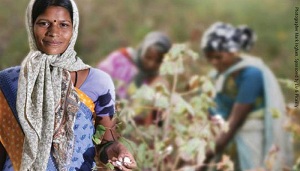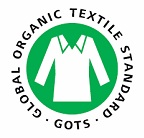Kinder Cleaner Better
As well as being a natural, renewable and biodegradable fibre, when cotton textiles are organic there are additional benefits.
Find out what the Soil Association Certification Ltd means to you.
Residues from toxic chemicals used to grow fibre and process textiles can sometimes be found in final products. These residues can be inhaled or absorbed through the skin and may cause allergies, skin rashes or respiratory problems. By prohibiting and restricting the use of harmful chemicals in organic textile production and processing, final products don't contain them.
The Soil Association Certification Ltd doesn't allow harmful manufacturing chemicals in organic textile production.
For a product to be truly organic, the way fibres are processed into products must also be considered. The textile industry as a whole is one of the most polluting in the word, and thousands of tonnes of (sometimes toxic) chemicals are used and disposed of by the textile industry.
Organic textiles don't allow harmful chemicals and requires a sound environmental policy. Organic fibres are grown without the use of harmful pesticides or GM; promoting a healthier farm and environment.
Almost 25% of all the world's insecticides and 10% of pesticides are sprayed on cotton, and some of these are responsible for poisoning wildlife and rivers, and killing thousands of people each year.
Also an estimated 30% of the world's cotton is now GM, representing its own potential risks and expense for farmers. Organic agriculture in contrast takes a holistic approach, that works with people and nature.
Social conditions are high in organic textile factories.
Manufacturers of Soil Association certified organic textiles must meet social criteria based on the International Labour Organisation (ILO) conventions. Organic cotton production can help farmers find a way out of poverty, through offering a healthier and more sustainable livelihood.
Organic cotton farmers do not have to buy expensive agrochemicals or pay for pesticide related health treatment for themselves and their families. Organic farming can mean a premium price for their crop, and often development and community support.
The Soil Association was founded in 1946 as a charity concerned with researching and promoting agricultural, environmental and human health. Today the Soil Association is a membership charity and NGO, working alongside its subsidiary, Soil Association Certification Ltd, which since 1973 has been certifying organic
farms and businesses.
They have been working in organic textiles for over 10 years and playing a leading role in the development of the Global Organic Textile Standards (GOTS) - which Soil Association Certification now certifies to.
When the Soil Association symbol is on a textile product, it means the production of the fibre on farm and the processing of this into textiles and final products has met organic standards, and has been checked at every step of the processing supply chain for social and environmental responsibility.
There's never been a better time to go organic.
The market for organic textiles is growing. People are better informed than ever about the social and environmental impacts of making textile products, and so businesses are responding by going organic. Organic textile businesses certified by Soil Association Certification saw their sales grow a whopping 35% in 2010!
Textile Exchange report there are over 220,000 farmers in 22 countries growing organic cotton; and around 3,000 textile processors in 55 countries have taken the next step, gaining certification to GOTS: ginners, spinners, dyers, weavers, knitters, finishers, printers, manufacturers, brands; offering fashion, baby items, home textiles, mattresses, cotton wool products.
All is possible in organic!
www.sacert.org www.soilassociation.org